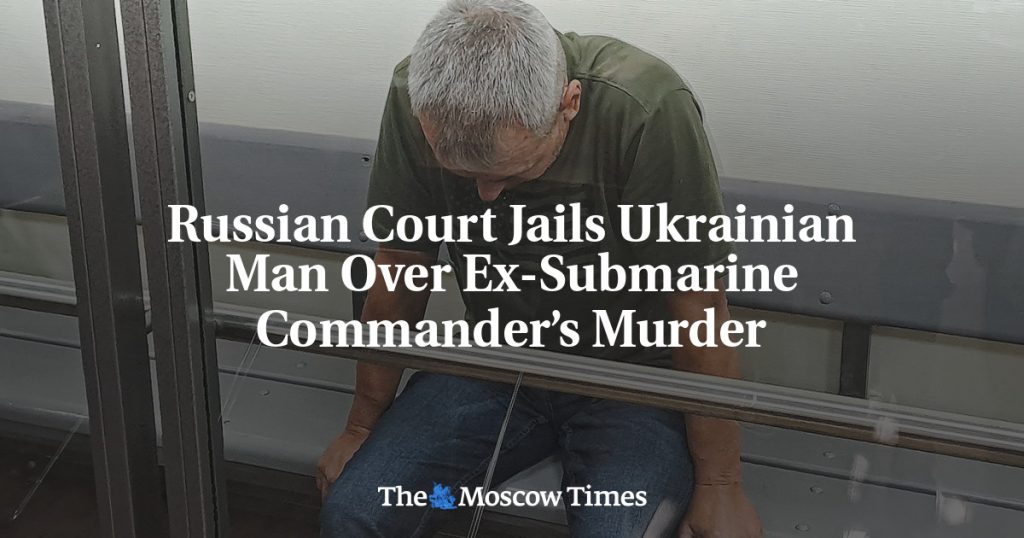A Ukrainian man, Sergei Denysenko, was sentenced to 25 years in prison by a Russian court for the murder of an army recruitment officer and former submarine commander, Stanislav Rzhitsky. The murder took place in Krasnodar, with Denysenko being arrested two days after the incident. The court found Denysenko guilty of murder and treason, stating that he was part of an organized group that was responsible for assigning him the task of killing Rzhitsky due to his activities in service. The sentence included five years in prison and the rest in a strict-regime penal colony, along with an order to pay compensation to the father of the deceased.
Footage from the court showed Denysenko’s reaction to the sentencing, where he appeared with white cropped hair and beard, shaking his head and shrugging. Rzhitsky held a prominent position as the deputy to the Krasnodar city administration official in charge of army mobilization operations and had previously served as the commander of the Krasnodar submarine. Investigators revealed that Denysenko had learned Rzhitsky’s jogging routine and ambushed him in a wooded area of a park early in the morning, shooting him at least eight times. Denysenko, originally from Ukraine, obtained Russian citizenship shortly before the murder.
Reports from Ukrainian media tied Rzhitsky’s murder to his involvement as a submarine commander in the Black Sea Fleet, noting the Krasnodar submarine’s participation in missile strikes on Vinnytsia in July 2022, resulting in fatalities. According to the Kommersant business daily, Rzhitsky had left his submarine post in 2021. The case sheds light on the complex geopolitical tensions and conflicts involving Russia and Ukraine, with Denysenko’s actions and the implications of Rzhitsky’s past military service adding a layer of significance to the tragic incident. The court’s sentencing reflects the severity of the crime and the impact it had on the victim’s family.
The murder of Rzhitsky and the subsequent legal proceedings underscore the challenges and complexities of international relations, particularly in regions fraught with political tensions and historical animosities. The connection between Denysenko’s Ukrainian background, Russian citizenship, and the circumstances surrounding Rzhitsky’s past military activities highlight the intertwined nature of personal grievances, national allegiances, and acts of violence. The court’s decision to impose a lengthy prison sentence on Denysenko for the murder and treason charges reflects the seriousness of the offense and emphasizes the need for justice in cases involving such heinous acts.
The sentencing of Denysenko serves as a somber reminder of the consequences of conflict and violence in a world where geopolitical rivalries and personal motives can intersect to tragic ends. The loss of Rzhitsky as a recruitment officer and former submarine commander reverberates beyond the confines of the courtroom, touching upon broader themes of duty, loyalty, and the human cost of military service. As the case unfolds and the details surrounding the murder come to light, it underscores the fragility of peace and stability in regions where historical grievances and territorial disputes continue to shape present-day interactions. Ultimately, the case serves as a cautionary tale of the complexities and challenges inherent in navigating the murky waters of international relations and the potential consequences of unresolved conflicts.














